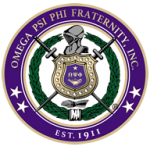
It makes you depend on other people and support each other." He believes that a "physically and mentally challenging" indoctrination is crucial to building a strong brotherhood. "It pushes you to your physical and mental limits.

"The pledge process brought a lot out of me," Martin says. "Nothing happens that you do not consent to." One reason he chose Omega Psi Phi in the first place, he says, was "I heard it was the hardest one to pledge." But "I would definitely do it again," he says. Martin says he was paddled, slapped and kicked when he joined the Omegas in 1986. "A lot of the undergraduate chapters are trying to mobilize undergraduates to oppose this," says Marlow Martin, a University of Maryland senior and head of the campus Panhellenic Council, which represents the eight black Greek organizations. Traditionalists, of whom there are many in the fraternity system, are outraged by plans to do away with pledging. "Unless we take some serious action to eliminate hazing, we could all be out of business, plain and simple, because of somebody acting a fool." Womack, national president of Phi Beta Sigma. Lawsuits are being levied against the organizations," says Carter D. They want to develop a whole new way of bringing in members - one that doesn't involve physical or psychological pressure.Īnd they say the very survival of the fraternities and sororities depends on it. So violent, in fact, that the leaders of those four fraternities, and of the four national black sororities, have made a stunning decision: They want to abolish "pledging," the traditional period of indoctrination and testing before a student becomes a full-fledged brother or sister. Alumni chapters pride themselves on their volunteerism, and on being a network for black professionals.īut on college campuses, black fraternities have a reputation for distinctively violent hazing. Douglas Wilder, Tom Bradley, David Dinkins and Walter Fauntroy. The four national Greek-letter fraternities for African Americans - Alpha Phi Alpha, Kappa Alpha Psi, Omega Psi Phi and Phi Beta Sigma - can claim many illustrious members, among them Thurgood Marshall, Jesse Jackson, L. "It's just amazing what you can do to other people." "That is what scared me the most," he says.

"I'm still not a violent person." Yet as a "big brother" he would slap pledges hard across the face, sometimes for no reason, fully confident that none of them would dare lift a hand against him.Īnd he would feel no remorse. "I've never been a violent person," says this 23-year-old graduate of a mid-sized Southern university. When his turn came to carry on the chap- ter's secret tradition of hazing, he did it with gusto. What he now regrets, he says, more than the blows he took, is the punishment he laid on the next batch of pledges. He endured almost seven weeks of rigorous hazing - paddling, face-slapping, body-punching and worse - and he became a respected brother for it.

The scar on his buttocks is a permanent reminder of how important it was to him, just four years ago, to get into a fraternity.


 0 kommentar(er)
0 kommentar(er)
